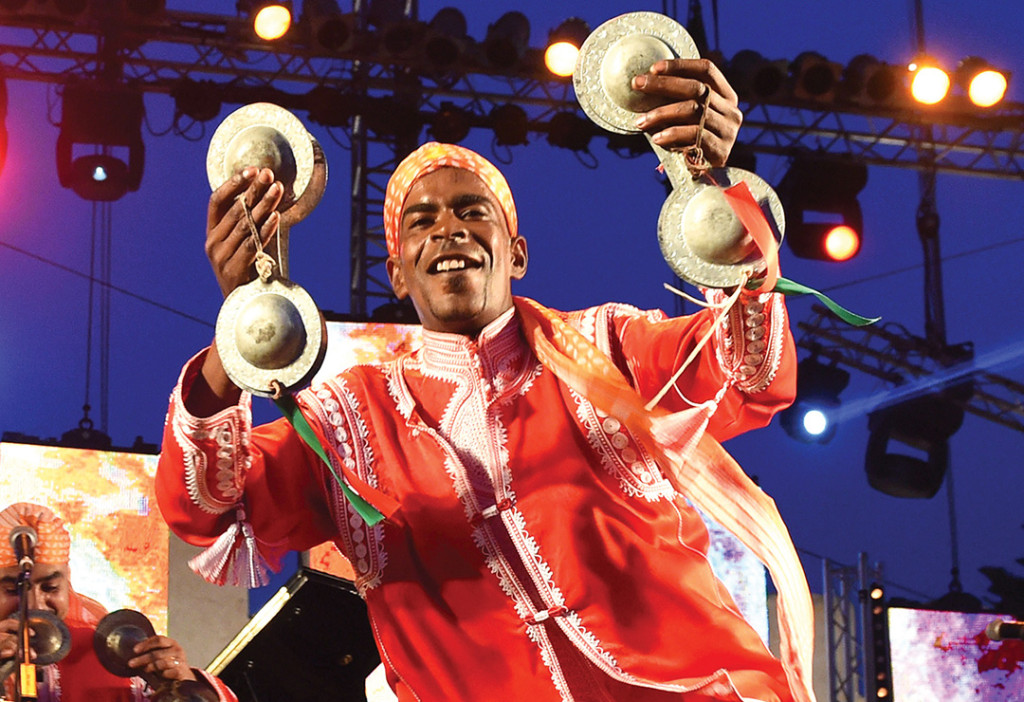Morocco’s Gnawa festival attracts hundreds of thousands of people — but it’s about more than music and color. It has come to symbolize the fight against ISIS and extremism.
Each Gnawa group, or Islamic “brotherhood,” is dressed in different, elaborate, colored robes. They sing, breaking off for whirling dance routines, and are accompanied by hand drums and deafening metal castanets. The Gnawa are devout Muslims, but their religion, like their music, is something of a fusion. Their belief in the spirit world and in the power of music to heal through trance ceremonies is a reminder of their links to West Africa.
When the festival started, the aim was simple — to help the Gnawa and to boost tourism. An estimated 250,000 people visited the festival over four days in June 2015. The government provides nearly a third of the funding for the free event, and the rest comes from corporate and private sponsors. “Every euro put in as sponsorship generates 17 euros spent in Essaouira — and tourism has brought more jobs,” said festival director Neila Tazi.
But in 2015, the festival had a new significance, showing that music and Islam can coexist at a time when ISIS and its supporters aim to destroy musical events. Across the Sahara, in northern Mali, the celebrated Festival in the Desert has been postponed since 2012 because of security concerns after the Islamist uprising. Along the Mediterranean in Libya, ISIS militants this year burned musical instruments — drums, brass and woodwinds — that they had confiscated under their interpretation of sharia.
The Gnawa were horrified. “They are ignorant,” said Maalem Abdelslam Alikkane, a musical instrument maker from the region. “They don’t know what they are doing. They are stupid. Islam is not that. It’s peace, music, color, respect … it respects other religions.”
Neila Tazi sees the situation in broader terms. Born in the United States, she produces music and film events, and for her, the Gnawa festival and similar events have come to symbolize contemporary Morocco and its place in the Islamic world.
“People are afraid of Islam,” she said. “But this kind of event shows the real Islam in Morocco, the positive Islam. When we started 18 years ago, we were criticized by the Islamists in Morocco; they didn’t like the way young people were dressing, or the dancing. But now some of them are in the government, and they support what we do. It’s a popular event.”

